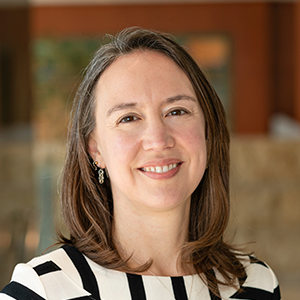The research community at the Institute includes visiting scholars, consultants, economists, and research analysts. These scholars bring a diversity of backgrounds, interests, and expertise to research that deepens our understanding of economic opportunity and inclusion as well as policies that work to improve both. We talked with four of them about their work.
For visiting scholar Abdoulaye Ndiaye, studying public finance is his way of deepening our understanding of how to address income inequality.
Struck that many rules of government benefit programs in Senegal, where he grew up, seemed ad hoc, Ndiaye started researching their structure and funding challenges.
To assist those with little income, governments offer social insurance, such as unemployment and retirement benefits, which are funded by progressive taxes. In the United States, despite profound income inequality, the top marginal tax rate is lower than it is in many other developed countries, limiting the government’s ability to redistribute.
Proposals to increase the marginal tax rates on high earners, Ndiaye explained, have been met with the criticism that they fail to consider how wages will respond to higher taxes. If taxes go up, the critique goes, then wage contracts will become riskier—that is, employers will pay employees less in base salary and more in performance- based pay—because now that the government is providing more insurance, workers will be willing to work for riskier wage contracts. This would mean the taxes that are intended to redistribute income won’t have much effect.
Ndiaye and his co-authors set out to study if this critique is valid by building a model of the economy that takes into account how wages are formed. About 50 percent of jobs in the U.S. feature performance-based pay, including many low-wage jobs in sales and agriculture.
They find that making the tax code more progressive has two effects, not just one. The increase in social insurance that results from more progressive taxes does make wage contracts riskier. At the same time, higher taxes mean workers want to work less, and so firms need to write wage contracts that are less risky for workers to accept them. “On net, the amount of risk in people’s earnings does not change” when taxes become more progressive, Ndiaye said. Performance-based pay is not sensitive to how progressive taxes are.
Using this new understanding of how taxes affect wages, the economists conclude that the optimal tax rate that would maximize the welfare of everyone in society, as Ndiaye said, “is more progressive than the current U.S. system.”
This article is featured in the Spring 2021 issue of For All, the magazine of the Opportunity & Inclusive Growth Institute
More Scholar Spotlights from this issue
Lisa Camner McKay is a senior writer with the Opportunity & Inclusive Growth Institute at the Minneapolis Fed. In this role, she creates content for diverse audiences in support of the Institute’s policy and research work.







